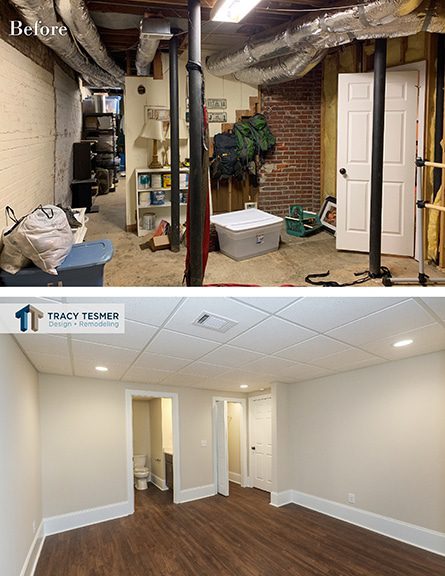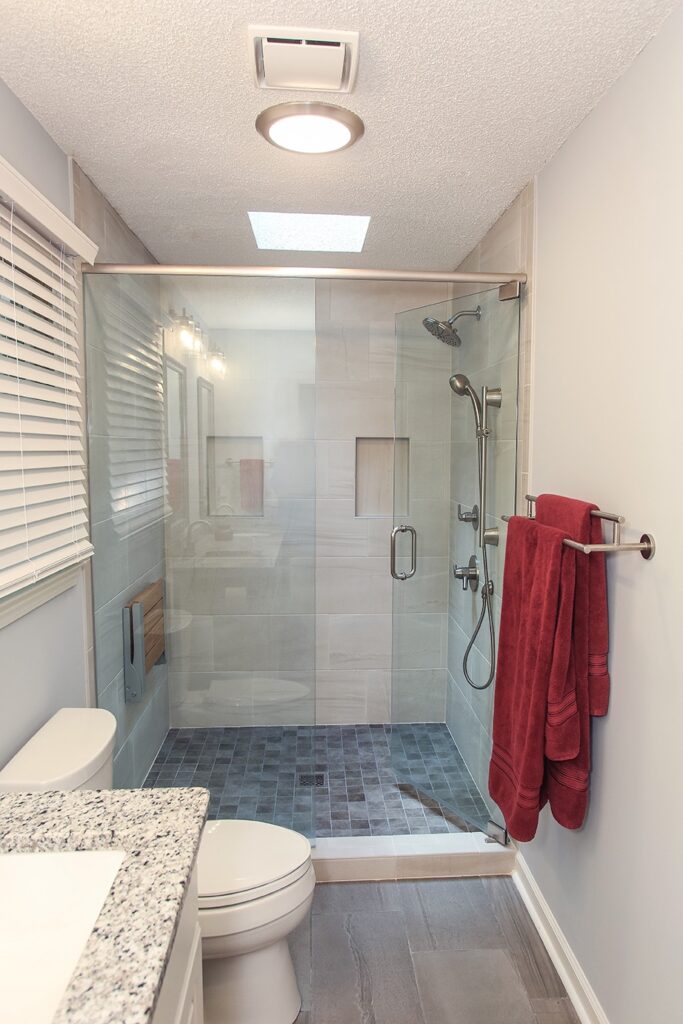Top Home Improvement Myths
Myth noun: a widely held but false belief or idea.
Myths exist in all manner of industries, and home improvement is no exception. Fact: interest and investment in home improvement, not just home maintenance, remain strong.
Spending on home improvement has been robust over the past several years. Home Advisor’s most recent “State of Home Spending” report showed consumer spending on home improvement projects was up 17% from 2018. Based on what we’ve seen in northeast Georgia, we expect that when the next report is released in Summer 2020, it will show that trend continued. 2019’s top home improvement projects were room remodels with bathrooms remaining the most popular. Whole room remodels such as kitchens and baths far outpaced other common home improvement projects such as cabinets and countertops, exterior painting, or flooring alone for example.
 Not all home improvement projects are created equal however, whether it is the size of the project or the skill level needed to complete it. When you’re considering a DIY project like staining your home’s front door or hiring a contractor to complete that basement suite you’ve long dreamed of but have been putting off, it’s important to know what is home improvement fact vs. myth. This way you can manage your expectations and reap the reward of your investment of time and/or money.
Not all home improvement projects are created equal however, whether it is the size of the project or the skill level needed to complete it. When you’re considering a DIY project like staining your home’s front door or hiring a contractor to complete that basement suite you’ve long dreamed of but have been putting off, it’s important to know what is home improvement fact vs. myth. This way you can manage your expectations and reap the reward of your investment of time and/or money.
Follow along as we bust 3 common home improvement/remodeling myths.
Myth 1: All remodel projects add (resale) value
Many homeowners wisely tackle a remodeling project with the goal of improved quality of life. The chief value for most is found in day-to-day enjoyment of a renovated or expanded kitchen, bath or addition. Home values typically don’t go down when selling, but expecting to recoup the full cost of a remodel or gaining more upon resale could leave you disappointed.
Remodeling magazine’s annual Cost vs. Value report allows you to compare costs of undertaking various projects with the project’s resale value in your market. In 2019, midrange kitchen and bathroom remodels, deck additions and siding replacement saw homeowners recoup anywhere from 65% to 78% of costs, whereas room additions or upscale renovations were closer to 50%.
That’s not to say you shouldn’t pursue a project if the resale value isn’t off the charts, especially if you plan to stay and enjoy your renovated home for several years to come. But if your main goal is to sell the home after completing a remodeling project, it pays to set your expectations in the right range, so you’re not left disappointed or in a financial pickle. Overly trendy finishes may also make your home more difficult to sell depending on the type of buyers in your market.
One item you definitely should not add for resale value alone? A pool. If you want a pool because it’s something your family will enjoy, then by all means, renovating your outdoor space will likely provide you with years of memories and enjoyment. But keep in mind that adding a swimming pool can severely limit your home’s pool of buyers.
Myth 2: All contractors are comparable
While sticking to your home improvement budget is important, you should never decide who will work on your home based solely on price. We all know someone who swears they are an expert in all things DIY. Maybe they are. But odds are if they were such a home remodeling whiz, they would be licensed and working for or own a design/build firm themselves.
 If a contractor or design/build firm is the lowest bid by a large margin, there is usually a reason why. And it isn’t that the person knows special secrets and shortcuts that other professionals just don’t. The last thing you want to deal with is someone who cuts corners, forgot to include necessary items in the budget, or is unable to finish a job if something unexpected were to occur.
If a contractor or design/build firm is the lowest bid by a large margin, there is usually a reason why. And it isn’t that the person knows special secrets and shortcuts that other professionals just don’t. The last thing you want to deal with is someone who cuts corners, forgot to include necessary items in the budget, or is unable to finish a job if something unexpected were to occur.
Certainly the recommendation from a family member or close friend you trust should carry weight, but it’s a good idea to talk to more than one person. Always check your firm’s insurance and ask for past references. Reputable contractors and renovators should have plenty of happy clients willing to provide a reference. Schedule an in-person meeting with the contractor and look for signs of professionalism, knowledge and the ability to communicate effectively. Also beware of someone who promises that no matter what, the project will not go over time or budget.
At Tracy Tesmer Design/Remodeling, we pride ourselves on accomplishing both of those goals on a consistent basis. The fact remains that sometimes unexpected things happen – there was a hidden old leak that damaged the subfloor which now must be replaced, or the countertop you have your heart set on is taking longer to arrive from the supplier than was estimated.
In addition, design/build firms tend to have a wide array of experience. As professionals in the business, we have seen it all and know what can work and what will not. A really good home remodeler will offer suggestions to improve upon your original idea. Take the suggestions or leave them, but typically these are ideas or features you’ll look back on and wonder how you would have lived without them.
For most folks, the family home is their single largest investment, so these are all important things to consider when hiring a professional to work on your house. Remember, if something sounds too good to be true, it probably is. Whereas when you choose a reputable, experienced contractor and design/build team, your investment in your home is much more likely to bring you happiness instead of horror stories.
Myth 3: DIY will always save money
Watching a YouTube video about how to sand and stain your front door may be all the instruction you need to wind up with a finished project you’re excited about, even if it did take a lot more effort and time than the how-to video made it look.
A small project is one thing, but some homeowners feel that they can tackle any DIY project by themselves and save oodles of money in the process. While this may be true in simpler cases, in the long run you are usually better off hiring a professional. For one example: trade specific equipment and tools may be too large of an investment to justify the expense if you’re only going to use them on one project.
Your neighbor Chuck may have a pretty cool man cave, but he also may have a wider skillset or the time to tackle such projects. And who knows if he failed to mention that his father-in-law is a retired contractor who gave him a bit more advice and assistance than he let on?
A good rule of thumb: if you have never performed the task you are going to undertake or have any hesitations whatsoever, it’s probably wise to call in the pros. At the end of the day, any mistakes you make could end up costing you much more to correct than it would have if you hired a construction firm from the start. When all is said and done, you would likely have to hire them to finish the project anyway! Trust us, we speak from experience and could create a long list of home improvement projects that started as DIY and ended up in our hands.
If you are considering a home improvement or remodeling project, we would be honored to talk with you to see if we’re a good fit for what you have in mind.
